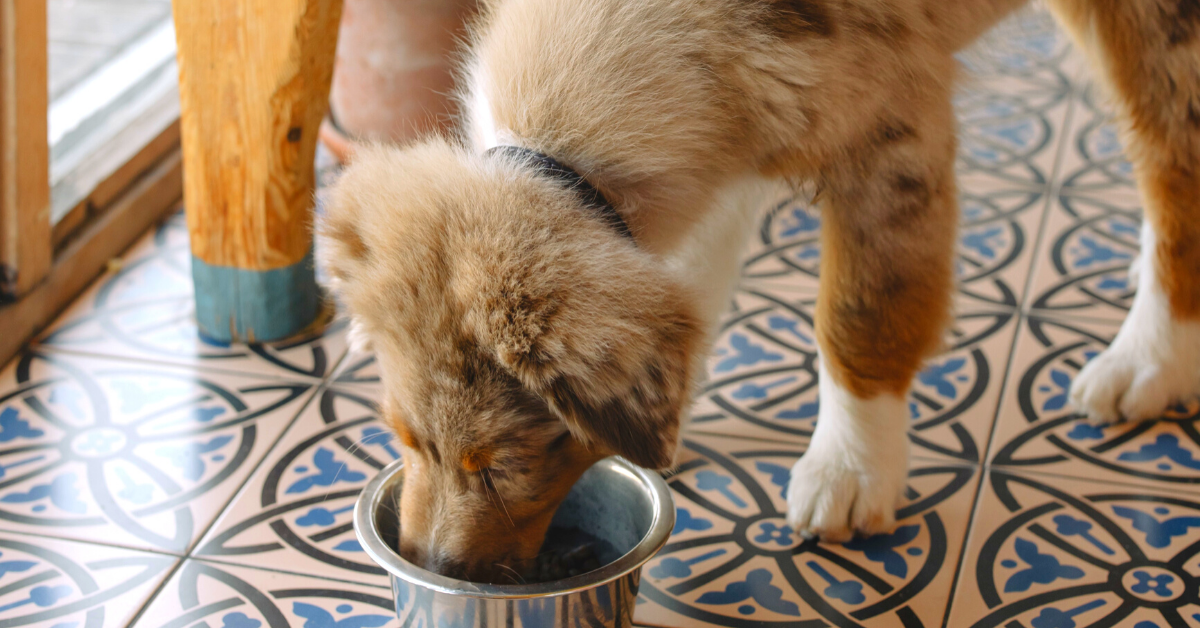
Balance is key. In everything. Including the makeup of your dog's gut. When that balance is upended, your dog (and you) pays the price. Diarrhea, gas, constipation, abdominal pain … all are symptoms of a gut out of balance.
Restoring gut health in dogs requires getting their gut microbiome back to a balanced mix of good and bad bacteria, digestive enzymes, and fiber.
Here's what you need to know about gut flora imbalances and how to restore gut health for dogs.
(For more on the importance of a healthy gut, check out "How Important Is Your Dog's Gut Health?")
It's not a pretty picture, but living inside your dog's gut (stomach, small intestine, colon) is a thriving microcosm of good and bad bacteria. The health of this microcosm (called the microbiome or gut flora) is very much tied to what we put in our dog's bodies.
Here's what you'll find in that soupy mix that makes up a dog's digestive system (aka, his gut):
Gut flora imbalances occur when the bad bacteria in your dog's gut outweighs the good.
These imbalances can be slight or severe.
In slight imbalances, your dog has all the "right" bacteria but doesn't have enough of them. In severe imbalances, your dog may be missing entire strains of probiotics he needs to be healthy. Or may have large numbers of bad bacteria that normally aren't found in a healthy dog.
Imbalances can occur through poor diet. Or if your dog is taking antibiotics, which are well known for killing all bacteria – good and bad.
Additionally, parasites can upend the balance of your dog's gut, as can a lack of fiber.
Other causes of unbalanced canine gut flora include: food intolerances and allergies, medications, poor diet that lacks key nutrition, chronic stress, and illness.
Restoring gut health in dogs usually requires several steps. Whenever possible, work with your vet to determine what caused the imbalance. This will allow you to tailor your plan of action to your dog's specific needs.
What follows are some of the most common ways to restore gut health for dogs.
An easy (and fun) way to help maintain the balance in your dog's gut is to ensure he's getting plenty of exercise and attention. Just like in humans, when we're out of shape and down in the dumps, the rest of our body gets sluggish too.
Check for food intolerances or allergies. (Many allergies present as stomach issues.) If you find any, do your best to remove the offending food or environmental irritant. This can go a long way in cutting down on the bad bacteria that's growing in his gut.
We know it's hard to resist that begging face, but letting your dog eat leftovers is definitely a no-no. Their digestive systems are not equipped to handle most of our food. And too much of it can cause the growth of bad bacteria. (There are some exceptions, see below high-enzyme treats.)
Some vets suggest getting a microbiome health test, especially for dogs with severe stomach issues. These tests screen for the exact bacteria (and in what amount) that are in the dog's gut. This can help determine what steps you need to take to restore gut balance.
Even without a test, there are methods you can use to restore some, if not all, of the balance in your dog's gut flora.
An easy way to restore your dog's gut flora is by adding a probiotic and prebiotic-rich supplement like Veterinary Formula Clinical Care's Super Probiotic.
Try to avoid foods with lots of by-products and fillers. As a carnivore, your dog needs meat proteins (and the enzymes they include). But he also needs key food-based nutrients like omegas, vitamins, and antioxidants.
Add high-enzyme treats like papaya, fermented food, or fresh meat. (Enzyme-enriched chews also work.) This is especially important for German Shepherds, Chows Chows, Cavalier King Charles Spaniels, and Rough-Coated Collies, which are prone to a disease (exocrine pancreatic insufficiency) that makes the pancreas incapable of producing enough enzymes.
Product Picks